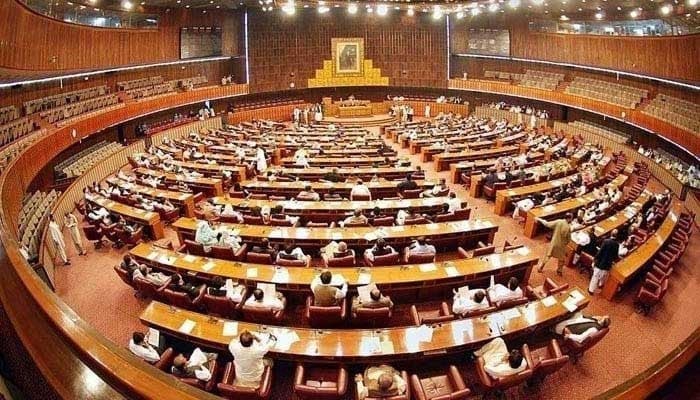Coalition woes
Dar is praised for keeping the rupee stable and fighting with the IMF to stall economic reforms
LAHORE: None of the political parties have a clear program to steer Pakistan out of the current economic situation. The proposed coalition partners that will form the next government have divergent views on many important issues.
The immediate concern is who will head the Finance Ministry. The major coalition partner of PML-N has shown distrust in Ishaq Dar, who is the only man who has headed Finance in past three PML-N regimes (except a brief period when Dar had to flee to London mid-way during the last PML-N government). Dar is praised for keeping the rupee stable and fighting with the IMF to stall economic reforms. In the last coalition government led by Shahbaz Sharif, Pakistan had to pay a heavy price for his stubborn resistance to IMF proposals that delayed its program, and Pakistan had to ultimately accept more severe conditions that brought unbearable hardships for the electorate.
It is unfortunate that none of the three main political parties has an ideal person to run the finance ministry. The PPP government of 2018 first asked PML-N to lend Dar, who quit a few months later. Then they inducted Dr Hafeez Shiekh and then Shaukat Tarin, both outsiders, to look after the Ministry of Finance. The PTI government in 2018 experimented with Asad Umar, who failed miserably. He was replaced with Dr Hafeez Shiekh, who pursued painful reforms that did not suit the ruling party, and he was replaced with Shaukat Tarin, who after accepting tough IMF conditions made a U-turn of policies, nullifying reforms by Shiekh. It brought the country to the verge of default.
Apart from this issue, the coalition partners may have conflicting interests and ideologies, leading to difficulties in reaching consensus on important policy decisions. This can result in delays or a watered-down version of the reforms, hindering effective governance. Pakistan is not in a position to remain in policy gridlock.
Coalition governments are fragile, as either main coalition partners have to succumb to their demands or withdrawal of support from one or more partners can lead to the collapse of the government. This can create a sense of instability and uncertainty, which can be detrimental to economic growth and investor confidence. Parties in a coalition, if they want to be part of the government, have to compromise on their core principles and promises to accommodate the demands of their partners. This leads to disillusionment among voters and weakens the overall mandate of the government.
It makes the coalition less efficient in decision-making and implementation compared to single-party governments, as decisions often require lengthy negotiations and compromises. This inefficiency can impede the timely implementation of reforms, especially those requiring swift action. If things go wrong, which is likely, the coalition partners start engaging in blame games, shifting responsibility for unpopular decisions onto each other. This erodes public trust and makes it difficult for the government to effectively communicate its policies and achievements.
In the context of needing painful reforms, these drawbacks can make it challenging for a coalition government to successfully implement necessary changes, especially if some partners strongly oppose them. This is the time to seek divine help.
-
 Neve Campbell Explains Why She Avoids Watching Scary Movies As She Returns To 'Scream 7'
Neve Campbell Explains Why She Avoids Watching Scary Movies As She Returns To 'Scream 7' -
 Milan Tram Crash Leaves Two Dead, 39 Injured
Milan Tram Crash Leaves Two Dead, 39 Injured -
 Timothee Chalamet Touches On His Personality's Relatability With 'Marty Supreme' Role
Timothee Chalamet Touches On His Personality's Relatability With 'Marty Supreme' Role -
 Benny Blanco Explains Why His Feet Were Dirty During Podcast Debut
Benny Blanco Explains Why His Feet Were Dirty During Podcast Debut -
 Jake Humphrey Shares The Powerful Meaning Behind His Wrist Tattoo
Jake Humphrey Shares The Powerful Meaning Behind His Wrist Tattoo -
 Matthew Lillard Weighs In On His Return To The 'Scream' Franchise After Decades Of Persistence
Matthew Lillard Weighs In On His Return To The 'Scream' Franchise After Decades Of Persistence -
 Travis, Jason Kelce Share Blunt Dating Advice For Men: 'She's Gonna Hate You'
Travis, Jason Kelce Share Blunt Dating Advice For Men: 'She's Gonna Hate You' -
 Australia To Launch First High-speed Bullet Train After 50-years Delay
Australia To Launch First High-speed Bullet Train After 50-years Delay -
 Meghan Markle Turns To Desperate Bids & Her Kids Are Her ‘saving Grace’: Here’s What They’ll Do
Meghan Markle Turns To Desperate Bids & Her Kids Are Her ‘saving Grace’: Here’s What They’ll Do -
 King Charles Gives A Nod To Sister Anne's Latest Royal Visit
King Charles Gives A Nod To Sister Anne's Latest Royal Visit -
 Christian Bale Shares Rare Views On Celebrity Culture Urging Fans Not To Meet Him In Person
Christian Bale Shares Rare Views On Celebrity Culture Urging Fans Not To Meet Him In Person -
 Ariana Grande To Skip Actor Awards Despite Major Nomination
Ariana Grande To Skip Actor Awards Despite Major Nomination -
 North Carolina Teen Accused Of Killing Sister, Injuring Brother In Deadly Attack
North Carolina Teen Accused Of Killing Sister, Injuring Brother In Deadly Attack -
 Ryan Gosling Releases Witty 'Project Hail Mary' Ad With Sweet Reference To Eva Mendes
Ryan Gosling Releases Witty 'Project Hail Mary' Ad With Sweet Reference To Eva Mendes -
 Teyana Taylor Reveals What Lured Her Back To Music After Earning Fame In Acting Industry
Teyana Taylor Reveals What Lured Her Back To Music After Earning Fame In Acting Industry -
 Prince William Shows He's Ready To Lead The Monarchy Amid Andrew Scandal
Prince William Shows He's Ready To Lead The Monarchy Amid Andrew Scandal




